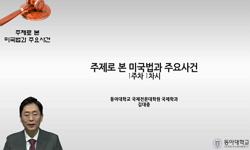The goal of this study is to find the meaning of ὁ νόμος τοῦ πνεύματος τῆς ζωῆς in the verse 2 of Romans 8, in which Paul depicts the identity of a believer who is spiritually abun...
http://chineseinput.net/에서 pinyin(병음)방식으로 중국어를 변환할 수 있습니다.
변환된 중국어를 복사하여 사용하시면 됩니다.
- 中文 을 입력하시려면 zhongwen을 입력하시고 space를누르시면됩니다.
- 北京 을 입력하시려면 beijing을 입력하시고 space를 누르시면 됩니다.

새 시대의 삶의 원리로써 성령 : ὁ νόμος τοῦ πνεύματος τῆς ζωῆς(롬 8:2)에 대한 또 다른 이해 = The Spirit as the Principle of the New Era: Another Look at ὁ νόμος τοῦ πνεύματος τῆς ζωῆς in Romans 8:2
한글로보기https://www.riss.kr/link?id=A106692125
- 저자
- 발행기관
- 학술지명
- 권호사항
-
발행연도
2020
-
작성언어
-
- 주제어
-
KDC
231
-
등재정보
KCI등재
-
자료형태
학술저널
-
수록면
109-144(36쪽)
- 제공처
-
0
상세조회 -
0
다운로드
부가정보
다국어 초록 (Multilingual Abstract)
The goal of this study is to find the meaning of ὁ νόμος τοῦ πνεύματος τῆς ζωῆς in the verse 2 of Romans 8, in which Paul depicts the identity of a believer who is spiritually abundant. As a Hapax legomena, the phrase occurs only once in the New Testament. Korean versions and English ones render it into “the law of the Spirit of life” or into “the law of the Spirit who gives life” on the basis of considering τῆς ζωῆς as an objective genitive. Many scholars see the phrase as one in a metaphorical sense and pay attention to πνεῦμα in the genitive form and νόμος which modifies it; νόμος plays a crucial role in determining the signification of the phrase. In the study, while evaluating various arguments about the meaning of the phrase, I briefly investigate the various references to νόμος which had been used in history (from 7th century B.C. to 2nd century A.D.). Then, attempting to figure out another look at the phrase in 8:2 in the context before and after it, I take notice of the fact that the prepositional phrase ἐν Χριστῷ Ἰησοῦ, which relates to the new era, modifies the phrase ὁ νόμος τοῦ πνεύματος τῆς ζωῆς. I carefully examines that “Christ Jesus” in Romans is described as the one who closes the old era and inaugurates the new era. I also discover that “Spirit” is the one who is characteristic of new era and necessary to believers. In that sense, ὁ νόμος τοῦ πνεύματος τῆς ζωῆς belongs to the realm of “Christ Jesus” who stands for the new age. In addition, arguing that the Spirit in Romans is the one who plays a leading role in bringing spiritual blessings in believers, I reveal that 8:1-13, to which 8:2 belongs is relevant to 5:12-21 in a chiastic structure: the Spirit of life is of the new era, and the law of sin and death of the old one. On the basis of the structure, I look into the contextual relation between the phrase in 8:2 and its previous sentence and the grammatical relation between νόμος and πνεῦμα in the genitive form. I maintain that the genitive τοῦ πνεύματος is the appositional genitive of νόμος; the phrase means “the principle, that is, the Spirit of life.” In conclusion, I argue that ὁ νόμος τοῦ πνεύματος τῆς ζωῆς in 8:2 signifies the “Spirit” as the principle for the people of the new era.
국문 초록 (Abstract)
본 논문은 성령에 의해 영적으로 풍성해진 신자의 정체성을 묘사하는 로마서 8장에서 신약성경에 오직 한번 등장하는 하팍스 레고메나인, ‘호 노모스 투 프뉴마토스 테스 조에스’(ὁ ν...
본 논문은 성령에 의해 영적으로 풍성해진 신자의 정체성을 묘사하는 로마서 8장에서 신약성경에 오직 한번 등장하는 하팍스 레고메나인, ‘호 노모스 투 프뉴마토스 테스 조에스’(ὁ νόμος τοῦ πνεύματος τῆς ζωῆς)의 의미를 발견한다. 이 구와 관련하여 한글 번역본들과 영어 번역본들에 의하면, 일반적으로 “생명의 성령의 법”으로 번역하기도 하며, “생명의”(‘테스 조에스’)를 목적격적 소유격으로 이해하여 “생명을 누리게 하는 성령의 법”으로도 이해한다. 학자들은 이 구 자체를 은유적으로 이해하기도 하고, 소유격 형태의 ‘프뉴마’(πνεῦμα)와 이 ‘프뉴마’가 수식하는 ‘노모스’(νόμος)의 의미에 주목하기도 한다. 필자는 본 논문에서 이 구에 대한 다양한 이해들을 평가하면서, 무엇보다도 이 구의 의미에 중요한 역할을 하는 단어이며, 주전 7세기부터 주후 2세기까지 역사적으로 다양한 의미로 사용된 ‘노모스’를 간략하게 고찰한다. 그런 다음, 필자는 8:2의 이 구의 전후 문맥적인 정황 안에서 또 다른 이해를 시도하면서, 8:2에서 새 시대와 관련이 있는 표현, ‘엔 크리스토 이에수’(ἐν Χριστῷ Ἰησοῦ)가 ‘호 노모스 투 프뉴마토스 테스 조에스’를 수식한다는 것에 주목한다. 엄밀하게, 로마서 전체에서 “그리스도 예수”는 옛 시대를 끝내고 새 시대를 도래하는 존재로서 묘사된다는 것을 고려하면서, “성령”은 새 시대를 특징짓는 존재이자, 신자들의 삶에 꼭 필요한 존재임을 필자는 드러낸다. 다시 말해, ‘호 노모스 투 프뉴마토스 테스 조에스’는 새 시대를 나타내는 “그리스도 예수,” 즉 새 시대의 영역 안에 속한다. 또한, 필자는 8장 전체에서 성령은 신자들 안에서 주도적으로 영적인 복을 가져오는 존재로서 묘사되며, 8:2이 속한 8:1-13은 교차대구 구조 안에서 5:12-21과 관련이 있으며, “생명의 성령”은 새 시대의, “죄와 사망”은 옛 시대의 원리임을 발견한다. 이것들을 근거로, 필자는 8:2의 그 구가 바로 앞 문장과 어떠한 관계를 갖는지를 살펴본다. 또한, ‘노모스’와 소유격 형태의 ‘프뉴마’의 문법적인 관계를 조사하고, 필자는 ‘노모스’를 수식하는 소유격 ‘투 프뉴마토스’가 ‘노모스’와 동격 소유격으로서, ‘호 노모스 투 프뉴마토스 테스 조에스’를 “그 원리, 즉 생명의 성령”이라고 주장한다.
목차 (Table of Contents)
- 1. 서론 2. ‘호 노모스 투 프뉴마토스 테스 조에스’에 대한 중요한 이해들 3. ‘호 노모스 투 프뉴마토스 테스 조에스’의 어휘 의미론적 고찰 4. 로마서의 정황 안에서 ‘엔 크리스토 이에수’와 ‘토 프뉴마’ 5. 8:2를 둘러싼 문맥 안에서 ‘호 노모스 투 프뉴마토스 테스 조에스’의 의미 6. 결론 참고문헌
- 1. 서론 2. ‘호 노모스 투 프뉴마토스 테스 조에스’에 대한 중요한 이해들 3. ‘호 노모스 투 프뉴마토스 테스 조에스’의 어휘 의미론적 고찰 4. 로마서의 정황 안에서 ‘엔 크리스토 이에수’와 ‘토 프뉴마’ 5. 8:2를 둘러싼 문맥 안에서 ‘호 노모스 투 프뉴마토스 테스 조에스’의 의미 6. 결론 참고문헌
동일학술지(권/호) 다른 논문
-
『바울과 선물』 서평: 바클레이는 어떻게 샌더스를 넘어섰는가?
- 한국복음주의신약학회
- 김형태
- 2020
- KCI등재
-
그레코-로만 전기의 장르적 특성에 비추어본 복음서 해석 : 마가복음 1:16-20절을 중심으로
- 한국복음주의신약학회
- 권영주(Youngju Kwon)
- 2020
- KCI등재
-
- 한국복음주의신약학회
- 박장훈(Park Janghoon)
- 2020
- KCI등재
-
- 한국복음주의신약학회
- 헤르만 리히텐베르거
- 2020
- KCI등재





 KCI
KCI 스콜라
스콜라






